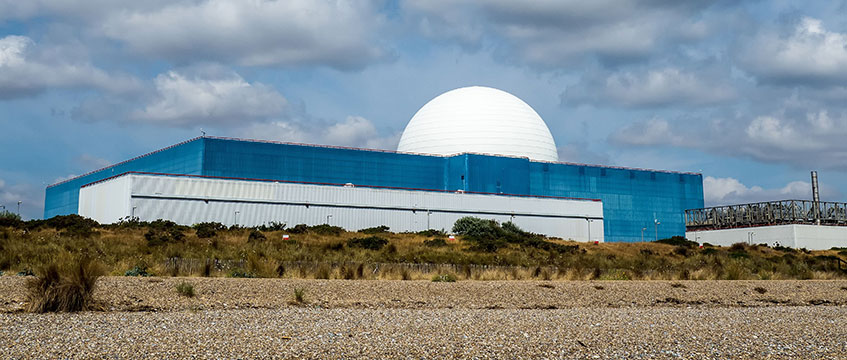Electricity generator EDF’s plans to build a nuclear power station on the Suffolk Coast have cleared their final legal hurdle after the Supreme Court refused to hear a legal challenge brought by a campaign group.
Together Against Sizewell C has been campaigning for more than a decade to stop EDF building two nuclear reactors on the Suffolk coast. It argues the plans will devastate local wildlife and change the area around the site from one of “rural tranquillity to brutal industrialisation”.
The plan was given the green light in July 2022 when then business secretary Kwasi Kwarteng granted planning consent, going against the advice of the examining authority. TASC challenged the decision in the courts, and in December it lost its case in the Court of Appeal.
Even so, the campaign group lodged an appeal to the Supreme Court, and in a decision handed down yesterday, a three-judge panel at the court refused to hear the case, saying that the campaigners had not raised “an arguable point of law”.
The decision means that this specific legal challenge can go no further.
“The decision of the Supreme Court to refuse to re-hear the challenge against Sizewell C is a victory for common sense, and the end of the road for this case, which was launched in August 2022,” said Catherine Howard, partner at Herbert Smith Freehills, who has been advising the EDF development company on the case.
During the Court of Appeal trial, TASC lawyers said the business secretary needed to guarantee how a permanent water supply of 2m litres per day for Sizewell C would be obtained before giving consent. This was rejected by the Court of Appeal judges.
The Supreme Court’s decision “confirms that Sizewell C’s environmental impact assessment did not need to guess at possible long-term water supply solutions, nor was the secretary of state under a duty to refuse consent until such time as there was certainty over water supply”, Howard said.
“It is the statutory duty of water companies to plan how to supply water in their regions and there is a well-known process they follow to do that – a process that runs to its own separate timetable and which Sizewell is not in control of. If the law were otherwise, it would lead to a sclerosis of the planning system – a point made by Mr Justice Holgate in his original judgment in the High Court,” she said.
Together Against Sizewell C Ltd v Secretary of State for Energy Security & Net Zero
Photo by Philip Silverman/Shutterstock
Share your feedback
Follow Estates Gazette








